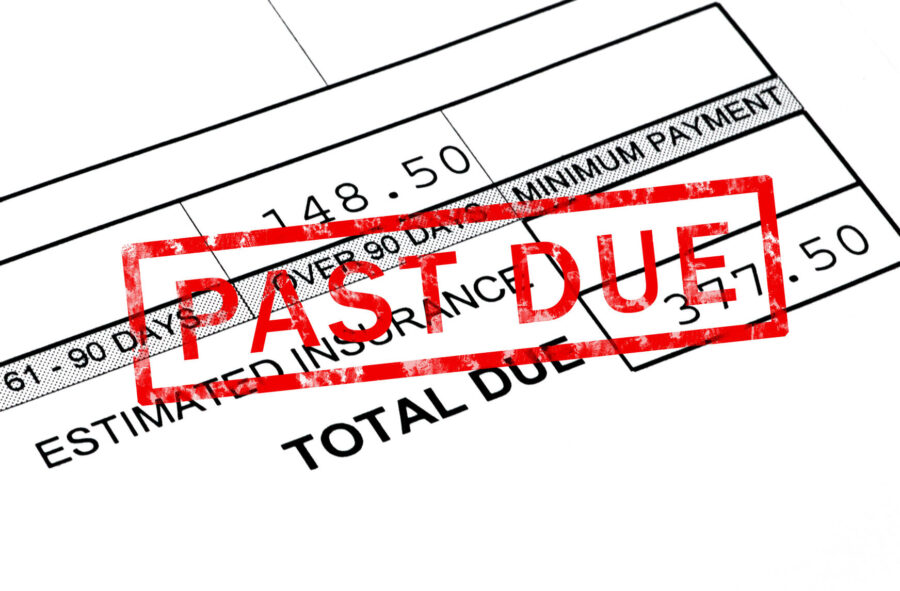Late rent collection is one of the biggest challenges a landlord has to go through. It’s absurd to overreact and start serving legal rent-demand notices. This only creates unnecessary tension if the resident has an acceptable reason for not paying rent on time.
That said, however, it doesn’t discount the fact that late rent is a serious issue. Any landlord should be able to deal with it. If you are a landlord or property manager, here are some tips to help you collect overdue rent without going through so much stress.
1. Strengthen communication with the renter
Communication with the tenant starts with drafting a clear lease and rent collection policy. The tenant will not be confused with the rent collection details once this is sorted out.
The landlord should discuss with the tenant once the rent becomes past due. Ask the right questions, such as:
- What’s the reason why the rent is still pending payment?
- When is the tenant expected to pay the rent?
- Will the tenant pay the full amount?
- What is the planned mode of payment?
Go to plan B if, despite all efforts, there’s still a communication breakdown or the renter becomes evasive. This may include sending out eviction notices as stipulated in the rent collection agreement.
2. Give rewards for early or on-time payments.
Positive reinforcement will encourage renters to settle payments as soon as possible. Reward those who pay early and in full consistently. This is the type of tenants that landlords want to stick with because they make their job less complicated.
Sending gifts or gift cards will make the renters feel the value of paying on time. Do this after a year’s worth of early or punctual payments. This will also encourage them to renew their lease.
3. Suggest automatic processing.
Tenants no longer have to worry about tracking monthly rent payments if an automatic payment is in place. Rent collection will then be instantly processed on the assigned day.
Pre-scheduled payments can be via account debits, bank bill pay, online payment, or post-dated checks.
Drastic Measures to Chase Late Payments
Is playing nice not working out in resolving late payments? Below are drastic measures that might produce a favorable result.
1. Debt reporting
It is possible to report the outstanding debt to the three major credit bureaus. This will reflect on the delinquent tenant’s credit report as unpaid rent. To cure the remaining balance, the tenant must settle the amount before the credit bureau removes the file.
2. Go to small claims court.
A small claims case can be filed against the tenant in accordance with lease terms and local court rules. Collecting late fees, legal fees, and additional damages is also possible.
Consider all factors involved first before trying this strategy. This needs a significant investment of time and resources for the whole process.
Review state collection laws, and get in touch with the small claims court for the required paperwork. Find the tenant’s mailing address so that he will be informed of the proceedings. Deciding if the investment made is worth it depends on the amount the tenant owes the landlord.
3. Seek help from a property manager.
A property manager will oversee the landlord’s property on his behalf. He will deal with rent collection, resolve issues, screen applicants, and handle evictions if needed. This is lifesaving, but it comes with a price. Determine if the benefits outweigh the expense.
Big No-No’s in Collecting Rent
Try to restraint yourself, regardless of how frustrating the situation can be. Here are some acts that you should avoid to spare yourself from further stress.
1. Going rogue
Some landlords remove front doors and turn off utilities in their attempt to get a response. This act is unprofessional and illegal.
2. Harassing the tenant
Everyone has the right to enjoy the peace of their home regardless of payment status. This includes not being harassed. Learn and follow regulations about verbal and electronic communication to avoid crossing the line.
3. Calling beyond business hours
Check the guidelines for contacting within the usual business hours specified in local regulations. Not only is it the polite thing to do, but this also prevents getting accused of harassment.
4. Issuing unauthorized notices
Notices like notice to quit, late rent notices, and demand letters are legal documents. The local area and state have specific laws about appropriate notices and how to issue them. If the legal guidelines need posting the notice on the door, it must be sealed in an envelope.
5. Showing up unannounced
Always give proper notification before going to the tenant’s home. Note that going there to collect rent is considered harassment. In addition, the tenant must consent to a payment pickup first.
Let MILA Realty Help Make Rent Collection Easier For You
Are you tired of following up on late rent payments with no positive result? A property manager can take away all your stress by handling all the challenging tasks for you.
If you need help with your property in Florida, MILA Realty can help. We can handle not just collecting rent but other tasks like maintenance as well. Reach out today and tell us how we can assist you.








